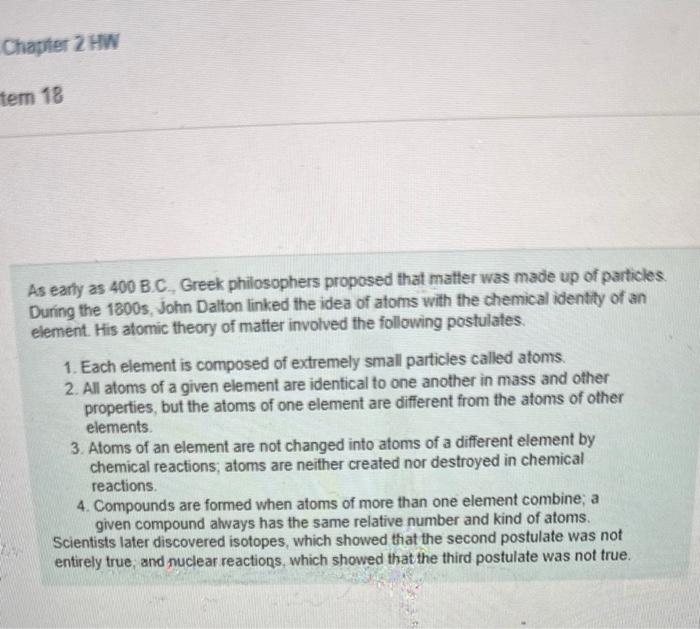Answered step by step
Verified Expert Solution
Question
1 Approved Answer
Chapter 2 HW As earty as 400 B.C. Greek philosophers proposed that matter was made up of particles. During the 1300 s, John Dalton linked


Step by Step Solution
There are 3 Steps involved in it
Step: 1

Get Instant Access to Expert-Tailored Solutions
See step-by-step solutions with expert insights and AI powered tools for academic success
Step: 2

Step: 3

Ace Your Homework with AI
Get the answers you need in no time with our AI-driven, step-by-step assistance
Get Started


